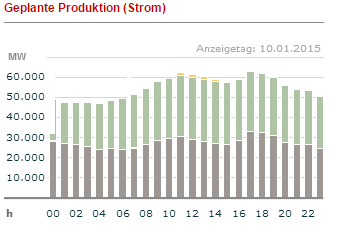 |
| Read the first chapter: Desktop | Mobile | PDF |
 All-Electric America
All-Electric America (Nonfiction –
This is a must-read book for anyone concerned with the environment. It is timely, what with Tesla marketing its Tesla 3 this month.
I began reading this book at home, on a rainy day, and kept going whilst waiting for hubby at an appointment. The day before we had visited Wolfe Island, the site of both wind power and photovoltaic (PV) energy initiatives (see photos below). I was impressed.
It is excellent. Well-researched, with lots of resources, they also publish a blog. These are two people fighting for a change in the way we harvest energy.
They explain how the USA could transition to all-electric, renewable energy society, despite big business lobbying, and claims against such success. They are aiming for 2050, and show how our grandchildren could be living in a different world.
 |
| Time Of Use |
Ontario Hydro hauls away old, inefficient appliances. They installed Smart Meters that incorporate Time Of Use (TOU) metres. (Sadly, they don't work in many rural Ontario homes, like ours! Too many trees.)
 |
| Hydro energy saving support |
Freeman and Parks Explain How To Rely on Renewable Resources
- Educate the public to simply cut back on energy requirements.
- Reduce, Reuse, Repair, Recycle, Repurpose and Reimagine.
- Change local transportation to all-electric: cars, busses, subways, trains.
- Convert consumer products, such as lighting, A/C, and appliances, to high efficiency.
- Convert building heating; from oil and natural gas to heat pumps, and more efficient methods.
- Improve energy storage of wind and PV power.
- Fix the automobile industry. It worked on gas efficiency. Now, let's legislate electric cars.
- Government subsidies, for now, for people like us to be able to afford to install our on-demand, tankless water heaters. Ours cost $3300, and we could have had a government subsidy ($650), if we'd known this BEFORE we installed it. It is not retroactive.
- Subsidies for PV installations (until prices come down), the way they did for electricity in the previous millennium. We'd love it on our roof, but we won't get our money back in our lifetimes. (Once installed they last 30 years.)
Barriers abound
 |
| This was the vision in Orillia. Lobby groups blocked it! |
many stakeholders.
- Lobby groups, like the oil industry, and the automobile industry have a vested interest in keeping us in the dark. They are supporting fracking, and are not prepared to stop methane leakage from natural gas.
- Uneducated politicians. The official opposition parties tend to blather on about barriers, or mistakes made, rather than getting on board with good ideas.
- Uneducated citizens regarding alternate energy sources. There is much controversy about wind power, for example. One woman didn't like our Muskoka home because it had an on-demand water heater. She didn't think it would work!
- Old, inefficient appliances. Sadly, some people cannot afford their expense electric home heating, nor can they afford new, more efficient appliances.
Biographies
Author S. David Freeman is a leading authority on energy policy. He was appointed by President Jimmy Carter as head of Tennessee Valley Authority, one of the nation’s largest electric utilities. After 7 years at TVA, he spent 30 years as the CEO of major public utilities in Texas, California, and New York.Author Leah Y. Parks is an associate editor for ElectricityPolic.com and Electricity Daily, a journal and daily newsletter that examine current events and the state of the electricity industry for utility executives, commissioners, regulators, and other experts in the field.
Wind power provides ~half of German electricity supply
We are different from Germany, however, this is where modern countries, who care about the earth, should be headed.

My Wolfe Island Wind Farm and PV Photos







Click icon for more
book review blogs
@Barrie Summy
book review blogs
@Barrie Summy





8 comments:
I think these changes will happen much faster than we think. Climate change is going to push this. This last year has shown the reality of global warming.
I'm all for these alternative types of power if you can afford it.
It sounds quite informative.
I'm obsessed with Tesla. I wish I could afford one, or lived in a place where it was practical to own one... But maybe soon! Thanks for the review. This sounds like a great book.
cutting back on how much energy we need is vital and all too often overlooked. This sounds like an interesting and valuable book
A good public service post! I wish the new Tessler weren't so expensive and that there were more recharging stations in Maine.
Fascinating take on a vital subject.... Thanks!
Thanks so much for posting the link to the blog! You should see our very populated roof! We added electric solar panels up there last year. They make a huge different. Of course, I live in a pretty sunny area. :) And we have thermal panels to heat the pool. Thanks for reviewing, Jenn!
Post a Comment